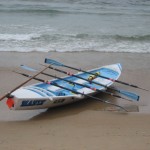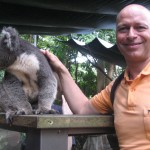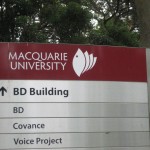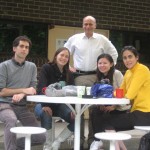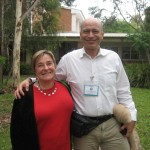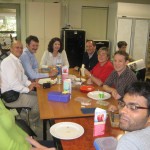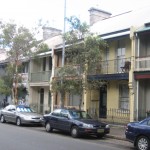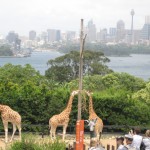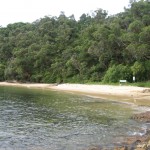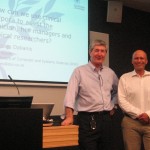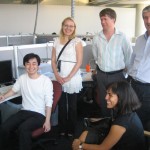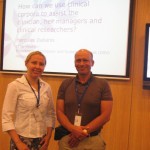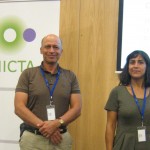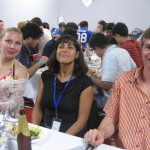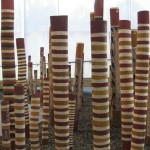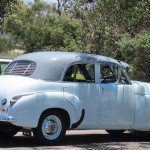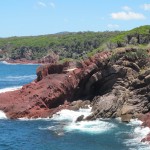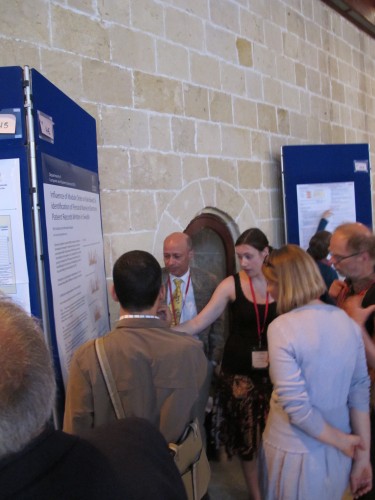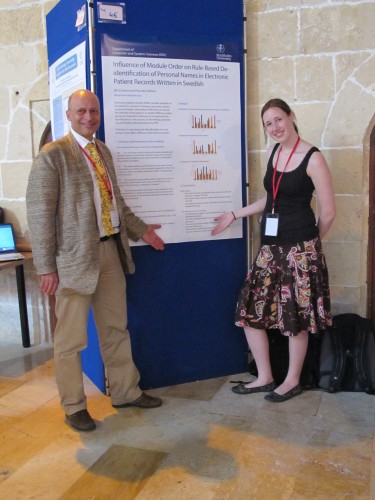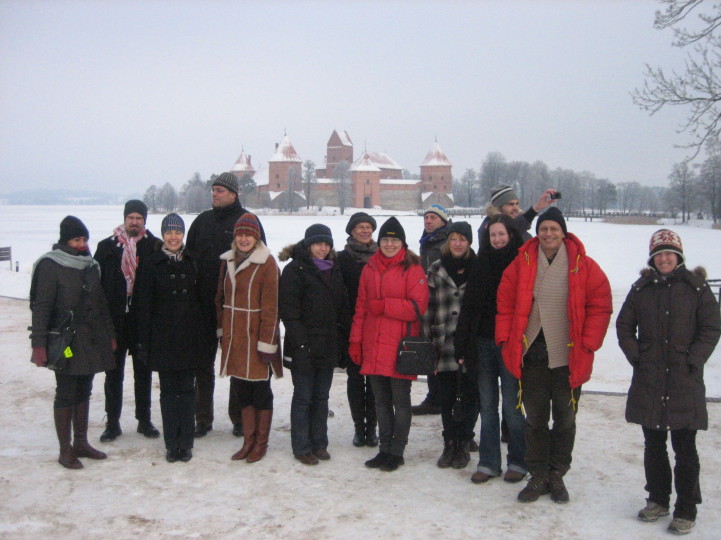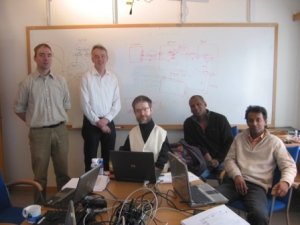 As a part of the EnRiMa FP7 project Naghmeh Aghaee and I, together with project partners from Great Britain and Austria, visited test-sites in Bilbao and Oviedo. The buildings at the test sites will be used for collecting data about energy consumption and energy transfers. In turn, this data will later be the foundation for creating a service-oriented decision support system. Currently the energy consumption and overall state of the software system can be remotely monitored and controlled. Besides the software being used, it was interesting to see how different, from a Swedish perspective, the heating of the buildings where done. In Spain it is quite common to use gas for heating, and the use of geothermal ground heat pumps is not common. During the spring we will start making a draft of the software architecture for the upcoming decision support system. For more information on the EnRiMa project, go to www.enrima-project.eu
As a part of the EnRiMa FP7 project Naghmeh Aghaee and I, together with project partners from Great Britain and Austria, visited test-sites in Bilbao and Oviedo. The buildings at the test sites will be used for collecting data about energy consumption and energy transfers. In turn, this data will later be the foundation for creating a service-oriented decision support system. Currently the energy consumption and overall state of the software system can be remotely monitored and controlled. Besides the software being used, it was interesting to see how different, from a Swedish perspective, the heating of the buildings where done. In Spain it is quite common to use gas for heating, and the use of geothermal ground heat pumps is not common. During the spring we will start making a draft of the software architecture for the upcoming decision support system. For more information on the EnRiMa project, go to www.enrima-project.eu
Research visit in Australia, November 29- December 10, 2010
A Service related visit
Syslab had once again the pleasure to welcome Hans Weigand and Jeewanie Jayasinghe Arachchige from Tilburg University for a short visit.
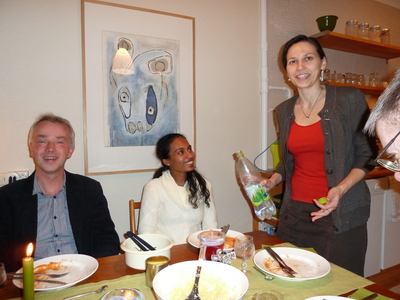
Hans, Jeewanie, Petia and about 2% of Paul at Chez Petia
The main purpose was to work on a particular kind of service which we tentatively call management service. A mangement service is a service that, in some sense, govern some other service. This work is well in line with previous work in the area of Service science that we have done together.
UPDATE: the work resulted in a paper that was accepted for presentation at the 23rd International Conference on Advanced Information Systems Engineering (CAiSE’11)
Report from the LREC conference in Malta the 19th to 21st of May
Hercules Dalianis, Sumithra Velupillai and me (Elin Carlsson) participated in the the seventh international conference on Language Resources and Evaluation (LREC) that was held in Valletta, Malta 19-21 May 2010. The conference had approximately 1200 participants and about 600 out of 900 submissions were accepted.
We presented three different posters: Creating a Reusable English-Chinese Parallel Corpus for Bilingual Dictionary Construction; How Certain are Clinical Assessments? Annotating Swedish Clinical Text for (Un)certainties, Speculations and Negations; and Influence of Module Order on Rule-Based De-identification of Personal Names in Electronic Patient Records Written in Swedish. I attach our report from the conference (written in Swedish): LREC2010_notes_and_reflections.pdf
Sumithra and Hercules present their poster: How Certain are Clinical Assessments? Annotating Swedish Clinical Text for (Un)certainties, Speculations and Negations
Elin and Hercules present their poster: Influence of Module Order on Rule-Based De-identification of Personal Names in Electronic Patient Records
Written in Swedish.
Hercules and Elin after the poster session.
Report from the HEXAnord network meeting in Vilnius
The 13th of January, the IT for Health group at DSV went for a three day HEXAnord network meeting in Vilnius, Lithuania. Apart from Hercules Dalianis, Martin Hassel, Sumithra Velupillai, Elin Carlsson, Helen Allvin and me from DSV, there were participants with a background in medical informatics, language technology and nursing science from Finland, Norway, Denmark, Estonia and Lithuania. The meeting consisted of seminars on SNOMED CT and on Machine Learning and Clinical Text and of an excursion to the nearby castle Trakai. Most importantly, the work of comparing Swedish and Finnish health records was initialized.
The organizers of the meeting were Hercules, who was in charge of agenda, and Helen, who took care of everything else in a fantastic way. The participants seemed to be very pleased with the very well-organized
meeting, and it was decided to meet again in Åre this spring and in the Stockholm Archipelago in the autumn.
Seminar on Value Encounters by Hans Weigand

This week Hans Weigand and his PhD student Jeewani Jayasinghe from Tilburg University visited us for doing research on value based service modeling. We discussed the relationships between web services and “real” services and how conflicts can be detected when combining services. Hans also gave a presentation on value encounters as a means for capturing the logic of co-creation of value.
Hans Weigand visits SYSLAB
Hans Weigand from Tilburg University visited us at SYSLAB 17 – 20 Dec 2007. We continued our previous work on value and business modelling. In particular, we discussed how service models could be based on value models. We also discussed how value activities should be modelled, in particular the issue that a value activity may use and contribute to the same resource, e.g. knowledge.
The figure shows, from left, Birger Andersson, Hans Weigand, Paul Johannesson, Ananda Edirisuriya, and Tharaka Ilayperuma.
Hans Weigand Homepage


